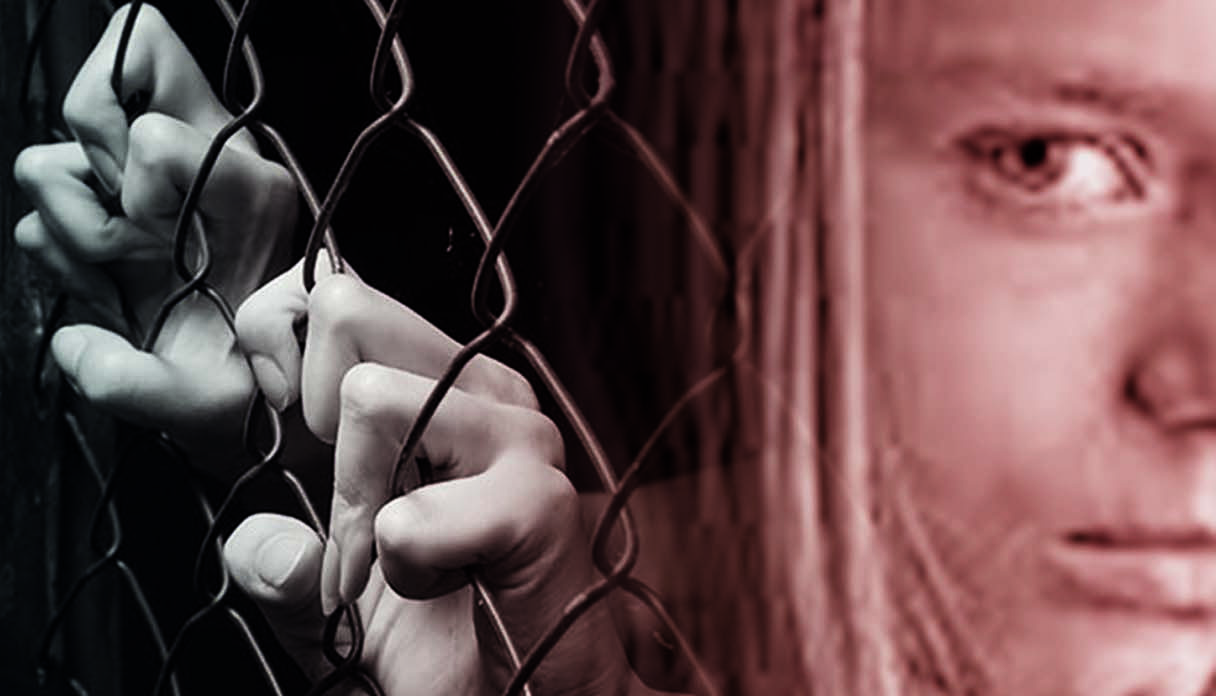By Shin Min By Maung Thaung Win (Ex-diplomat)
HUMAN trafficking is a kind of modern-day slavery. Trafficked men are usually exploited for their forced labour ; women and children are hardest hit in human trafficking . Women are sold for forced prostitution and children tend to suffer from forced prostitution and exploitation of their labour. Extraction of internal organs or body parts of trafficked people may lead to the loss of their lives.
Nowadays, human trafficking stands as the third largest crime after drug trafficking and gunrunning. A number of trafficked people yearly is about 20 million, generating a total of illegal profits of US$ 40 billion. That is the reason why a lot of difficulties encountered in fighting against human trafficking.
What does human trafficking mean?
Human trafficking is the trade in which a person seizes, transfers, sells, buys, lends , borrows, shelters or accepts another person with or without his consent in the hope of exploiting him. In committing such kinds of human trafficking, many methods are included such as threats, coercion, persuasion, cheating , enticement, abuse of power, abuse of one’s unstable life and squeezing money or other profits from a person’s inconsistent life. In addition, a person forces another person into prostitution, slavery and bonded labour; internal organs are extracted and sold for money or other profits and all profits are agreed and accepted , also committing crime deeds of human trafficking.
Reasons for Human Trafficking
Human trafficking occurs because of lack of job opportunities, extreme poverty, lack of knowledge, domestic violence and advice of friends and relatives for going abroad to earn more money. Some people are sold as servants in other countries for their feelings of embarrassment, honesty, lack of knowledge, admiration of foreign countries, by falling victims into the tricks of traffickers. Forced marriage, coercion, and forced prostitution followed. In addition, traffickers have exploited migratory workers for their advantages, thus paving the way to the emergence of human trafficking.
Human traffickers entice and sell people including women and children by giving a lot of incentives. Human trafficking gradually increases, thereby committing trans-boundary crimes. International Organizations have condemned human traffickers as violators of human rights. Still human trafficking keeps threatening human societies. Activities of human trafficking are found even in a country. Human traffickers have targeted at extremely poor people, children and young women. Human traffickers have enticed young women as sex slaves, exploitation of labor over men and extraction of body parts from children by giving a lot of incentives.
Trafficked people
Sex trade is called for a trafficked person who perform for sexual pleasure in the name of exploitation. Sex traffickers have exploited children as forced prostitution including sex slaves. Sex trading is a fast-growing kind of crimes all over the world. According to International Labor Organization, 20.9 million people have to work under duress. 22% of that numbers happen to be sex slaves. Nowadays, a population of about 40.3 million people have to work like slaves without getting any wages. Many trafficked people in many countries of the world have been working with small payments or no payment at all due to threats and violence. Illegal sex slavery is ubiquitous. Suffice to say, trafficked people should be dubbed as modern-day slaves. Increasing poverty rates and lack of sending children to school in the developing countries lead to an increasing number of child workers. Human traffickers lure children into a workplace by paying a lot of incentives.
Collective prevention against human trafficking
As human trafficking is a crime which cannot be solved by a single government of a country; by combing efforts of all countries in the world might reduce the crime rate in human trafficking. Cooperation between the United Nations and international organizations, and that of the country-level authorities must be dealt with building strong capability, knowledge-sharing for the people, technological supports, complete protection for the trafficked people and creation of ideas among the people for collective fight against trafficking must be emphasized. If authorities concerned might arrest traffickers, effective actions must be taken against them with severe punishments.
Wide punitive actions must be taken against trafficking defendants through the media. Rapists for juveniles, human and drug traffickers must be left out in prisons even during the general amnesty. If these criminals are pardoned, they could commit the similar crimes repeatedly. Parents should look after more on young people especially young girls. Human traffickers coax young people in different fashions; if strangers are found among the young boys and girls, enquiries must be made about them, sending the information to the authorities concerned. If children from schools and private tuition classes do not get home in time, immediate searches must launched. Parents or guardians should send and take them home if it is possible.
Anti-trafficking in Persons Day
The Anti-Trafficking in Persons Law was promulgated in Myanmar on 13 September, 2005; 13 September is fixed as Anti-Trafficking in Persons Day. The first duty of human trafficking is to forbid forced prostitution. As human trafficking has threatened the whole world, the governments and NGOs should take a collective part to fight against it. If human trafficking is appropriately managed, the trafficking rate will dramatically reduce to a certain extent. Human trafficking cannot, in any way, be eradicated overnight and collective efforts are the only answers for all the countries to reduce to an appropriate extent. Translated by Arakan Sein



